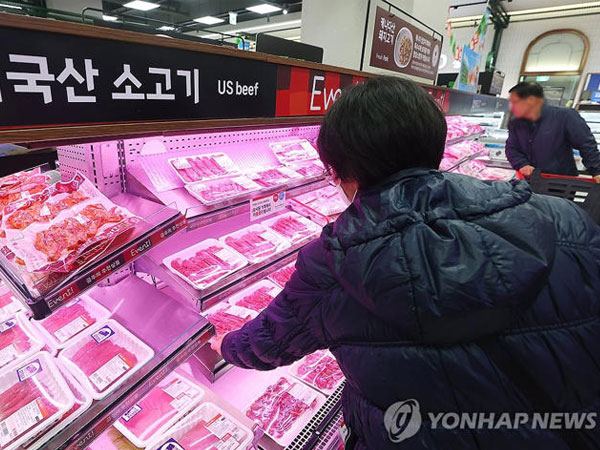 SEOUL, July 23 (Yonhap) -- The South Korean government has decided not to use further opening of the country's beef and rice markets as bargaining chips in tariff negotiations with the United States, setting them as a "red line," sources said Wednesday.
SEOUL, July 23 (Yonhap) -- The South Korean government has decided not to use further opening of the country's beef and rice markets as bargaining chips in tariff negotiations with the United States, setting them as a "red line," sources said Wednesday.
Such a decision was made in a meeting of economy-related ministers held the previous day, according to the sources familiar with the matter.
The agricultural and livestock sectors have emerged as key sticking points in trade negotiations between the countries, as Korea seeks to get full exemption from or reduction of U.S. reciprocal tariffs, as well as sectoral duties on imported steel and automobiles.
Among various issues, the U.S. is said to have requested Seoul to lift its import ban on American beef from cattle aged 30 months or older and expand imports of American rice.
But considering the sensitivity of the two items in terms of safety and food security, South Korea is considering further opening up its market for fuel crops, such as corn and other types of bioethanols, instead, according to the sources.
The age restriction on U.S. beef was introduced under the Korea-U.S. free trade agreement signed in 2008 amid fears over mad cow disease, or bovine spongiform encephalopathy.
But even with the age-based restriction, Seoul has been the biggest importer of U.S. beef in recent years, purchasing US$2.22 billion worth of American beef in 2024 alone, according to data compiled by the government.
In the case of rice, Korea imposes tariff rate quotas for imports from the U.S., China, Australia, Thailand and Vietnam, with the U.S. accounting for 32 percent of the total quota.
Each year, South Korea imports up to 132,304 tons of rice from the U.S. that are subject to only a 5 percent tariff, instead of the 513 percent it imposes on non-quota imports.
To grant Washington a bigger volume of imports, Korea has to go through complicated procedures of getting an approval from the World Trade Organization, which then requires parliamentary ratification under the country's treaty law.
The local agro-livestock industry has been fiercely opposing the government's possible decision to trade off beef and rice issues for a broader trade deal with the U.S., threatening to take collective action should the government even put such items on the negotiating table with Washington.














© Copyright 2025 The SSResource Media.
All rights reserved.